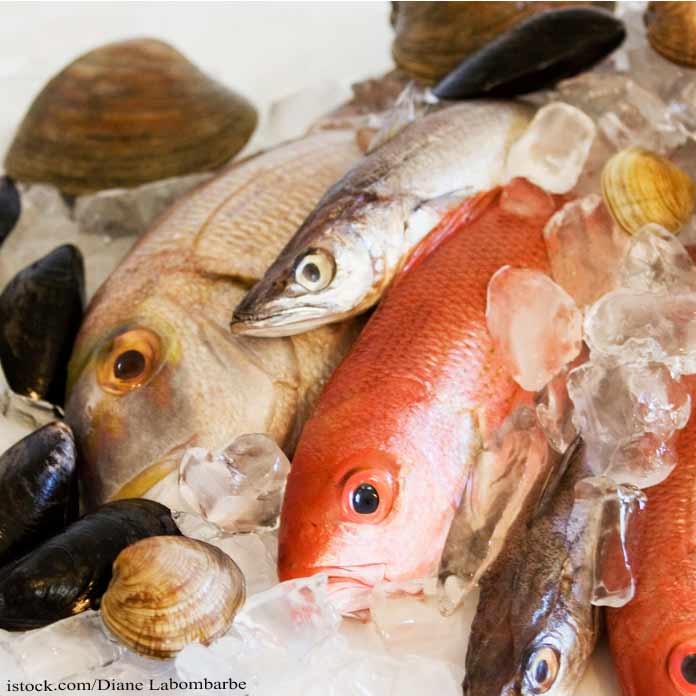If you eat fish, you need to know about Ciguatera poisoning, a type of food poisoning that is linked to fish harvested in warm waters. Ciguatera is a toxin produced by micro algae called Gambierdiscus toxicus. It does not change the texture, aroma, flavor, or appearance of the fish and it cannot be destroyed by cooking. The toxin can also survive a trip through the freezer.
Request a Free Consultation with a Lawyer
This foodborne illness is the most common type of food poisoning linked to finfish around the world, with about 50,000 cases reported worldwide every year. It used to only occur in tropical regions, but the algae that produces the toxin is being found in waters around Florida, Texas, and South Carolina.
Smaller, herbivorous fish eat the algae that contains the toxin. They are then eaten by larger fish. The toxin builds up in the flesh of those fish. Then when the larger fish are caught and served to people, humans get sick. The toxin doesn’t sicken fish, so they do not appear unhealthy or ill.
Symptoms of Ciguatera Poisoning from Fish
The symptoms of Ciguatera food poisoning mimic regular food poisoning at first, including nausea, abdominal pain, body aches, diarrhea, and vomiting. Those symptoms can appear in as little as 10 minutes after eating the fish.
But after a few hours, those symptoms can progress to tingling in the hands, feet, or mouth; joint pain, reversal of hot and cold sensation (hot things appear cold to the touch); and weakness in the lower extremities. Other odd symptoms include feeling like teeth are loose and aching, severe itching, slowing of heart rate, blurred vision, and pain on urination.
Most people fully recover within a few weeks, but others may have recurring symptoms for years. This illness rarely causes death, but it can lead to coma and respiratory arrest within the first 24 hours. Those who suffer the worst symptoms and those who die usually ate the liver, viscera, roe, and other organs of the fish.
There is no cure for the toxin, but treatment may include giving the patient activated charcoal, antihistamines, and intravenous fluid containing mannitol, a type of sugar. Anyone who has had ciguatera fish poisoning (CFP) must avoid eating reef fish, fish sauces, shellfish, alcoholic beverages, nuts, and nut oils for one to three months after they recover, because those foods may prompt a recurrence.
Ciguatera fish poisoning is a reportable illness in California. It is most likely underreported in this country because it is usually not fatal and effects don’t last long. The illness is more common in Hawaii, which had 20 to 57 cases reported every year from 1996 to 2000. A recent study found that only 2 to 10% of ciguatera cases are reported in the U.S.
The fish most likely to contain the toxin include larger predator fish including snapper, amberjack, king mackerel, wrasses, parrotfish, giant trivially, grouper, Spanish mackerel, moray eels, and barracuda. The larger the fish, the more likely it contains the toxin, because, just like heavy metals, it concentrates as it moves up the food chain.
The USDA has warned fish processors about fish that may have ciguatera in different areas around the countries over the year. No one can predict where the algae that produces this poison will grow, or why it appears in some waters and not others. Scientists think that increased algae growth may occur on coral reefs that have been degraded through pollution, hurricane damage, or climate change.
Fish processors must have a hazard analysis critical control point (HACCP) plan in place to ensure they do not buy fish harvested in areas where CFP is a risk factor. Restaurants are also obligated to inform their customers of the risk factor inherent in eating certain fish. If you ate fish at a restaurant and contracted ciguatera fish poisoning, you may be entitled to compensation.
Several outbreaks of CFP have been reported in recent years. In 2007, nine people were sickened after eating fish in North Carolina, and ten people contracted CFP after eating at restaurants in St. Louis, Missouri.
To protect yourself, be aware of warnings about ciguatera from public health officials. Don’t eat any fish larger than six pounds, and avoid eating the guts. If you fish to eat, avoid eating larger fish, especially carnivores that live in reefs. And if you do experience the strange symptoms of this illness, see a doctor for treatment. Then contact our experienced lawyers to help protect your legal rights.
